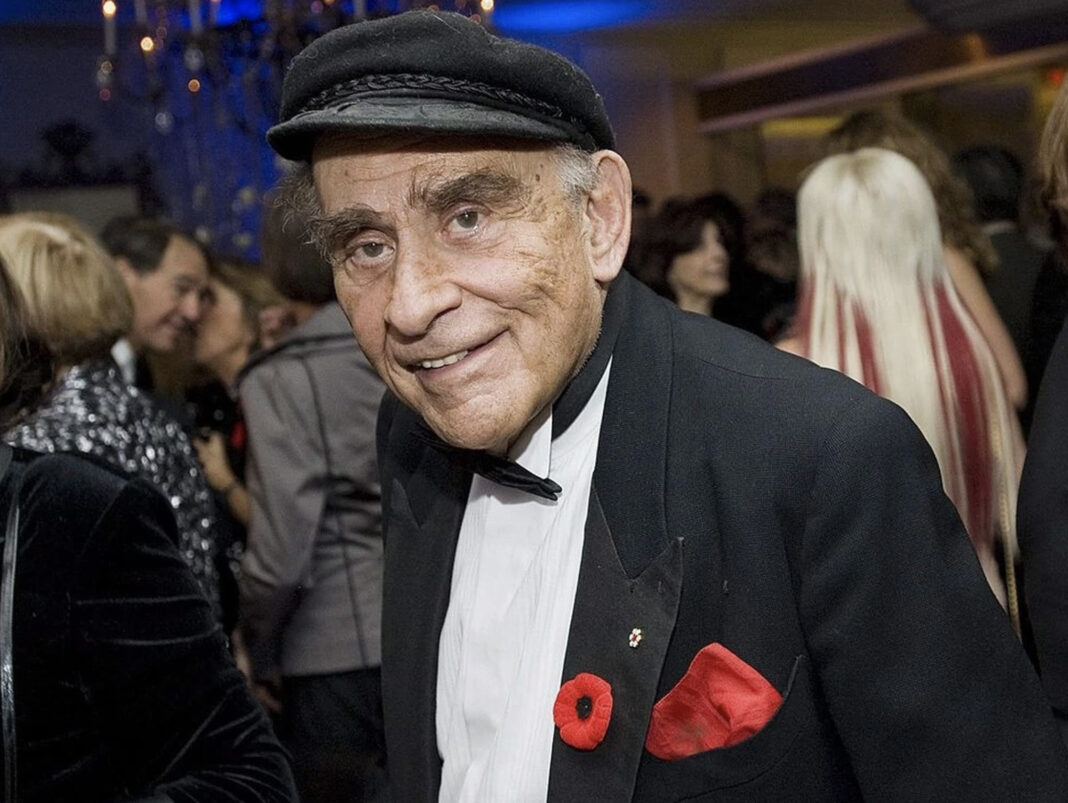PETER C. NEWMAN
1929-2023
I’m politically neutral, I attack everybody.
Peter C. Newman
By Angelina Kochatovska
In 1940, 11-year-old Peta Karel Newman waited on the French beach for the ship that would take him and his family to Canada to escape the Holocaust. Peta had to change his name and religion to flee from Nazis, get used to a new life as a refugee, and endure mockery from Canadian classmates because of his Jewish accent. As Peta’s thin skin was growing, he became one of the most influential political journalists in Canada.
He became Peter Charles Newman.
“There are certainly no big-time journalists or authors in Canada like him,” says Allan Levine, an author and historian, who had known Newman for four decades.
Newman died on September 7, 2023, from complications of Parkinson’s disease, being known as a prominent journalist, controversial author, and complicated person.
“Peter saw a new persona, got him into doors knowing that rarely would someone say ‘no’ to an interview,” Levine says. “He was very witty and funny with a sort of a strange combination of a bit of insecurity because of a lot of criticism for his work but yet Peter was the most confident person in the room.”
As the editor-in-chief of Maclean’s, Newman was the one who converted the magazine into a weekly publication in 1978 that made it popular not only in Canada but across the USA.
He wrote articles for most Canadian newspapers and in 1969 was the editor-in-chief of the Toronto Star for two years.
Newman, according to Ron Base, an author and journalist, created “new journalism”, writing a narrative non-fiction marked by a subjective style. His work mostly showcased national politics and business affairs. The journalist published more than 30 books, a million copies of which had been sold. Some of his most popular books are A Nation Divided: Canada and the Coming of Pierre Trudeau, The Canadian Establishment, and Here Be Dragons: Telling Tales of People, Passion and Power.
Levine says that Newman’s books made surprising records in sales as non-fiction books didn’t have Canadians’ interest at that time.
“He was really the first person to examine the business community and all these establishment books, even though some of them screamed, yelled, and sued about it. And again, only someone like him could have gotten access to those hundreds of business people.”
When some media workers acknowledge Newman’s charm to talk to anybody, there’re also those who were surprised by the author’s coldness at social events.
Base, who worked with Newman at Maclean’s, remembers his boss to be cold and sometimes nervous.
“He just seemed so frozen and removed that it was hard to imagine him going out and ingratiating himself into the icons of the Canadian establishment at the time, but he did somehow,” Base says. “In some social settings, he just seemed so ill at ease and you’d think that he was dragged down to the basement cellar with a single light bulb for the interrogation. He just seemed so nervous, but he was remarkable.”
However, Base also remembers that some of his colleagues would call Newman friendly and helpful.
For Levine, one of his favourite memories of Newman was when he attended one of the international conferences.
“For some reason, some diplomats thought that Peter was Pierre Trudeau. He just went along with that, talking to all of these people until Trudeau caught being furious with Peter even though they were friends before Pierre became prime minister.”
“He convinced the most private people in Canada to talk to him and reveal all their secrets and revolutionized the way in which politics was written,” Levine says.
In one of his interviews, Newman said, “‘We do not stop playing because we are old. We grow old because we stop playing.’ That’s my credo.”

